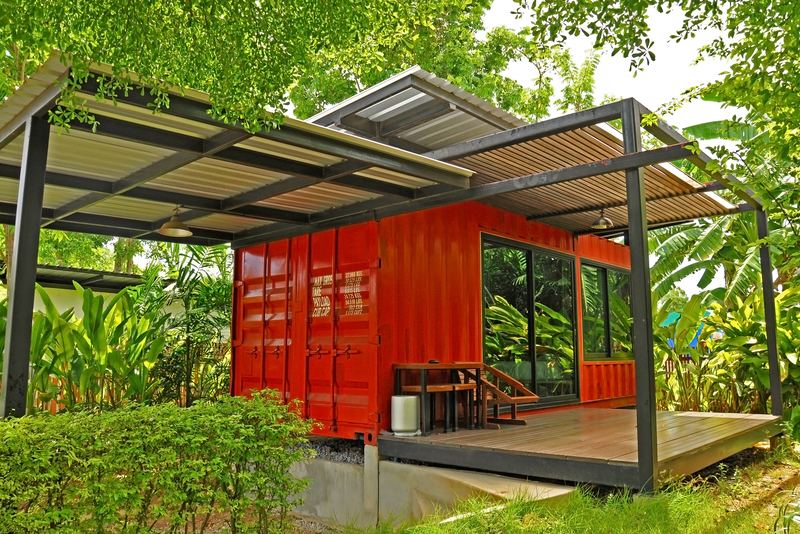Best Practices for Cost-Effective Bulky Waste Disposal
Bulky waste disposal can be a daunting and costly challenge for households, landlords, contractors, and businesses alike. Items such as old sofas, mattresses, furniture, appliances, and renovation debris require careful handling, often necessitating special collection or transportation. With rising disposal costs and environmental concerns, finding affordable bulky waste removal solutions is more important than ever. In this comprehensive guide, we'll explore the best practices for cost-effective bulky waste disposal, ensuring you save money while staying eco-friendly and compliant with regulations.

What Is Bulky Waste?
Bulky waste refers to large items or materials that are too heavy or oversized for standard household waste collection. These can include:
- Furniture such as couches, chairs, wardrobes, and beds
- Large household appliances, e.g., refrigerators, washing machines, and ovens
- Mattresses and box springs
- Carpets and rugs
- Building and renovation waste (doors, windows, bathtubs, etc.)
- Garden and outdoor equipment (BBQ grills, swings, lawnmowers)
Understanding what falls under bulky waste is the first step in choosing the best waste management strategies.
Why Is Bulky Waste Disposal Expensive?
The large size and complex materials in bulky items make them harder to dispose of compared to regular rubbish. Standard waste collection services often don't take these items, requiring extra scheduling, labor, and specialized vehicles. Additionally, landfill fees ("tipping fees"), recycling mandates, and fuel costs can significantly increase the price.
However, with well-planned methods and smart choices, affordable bulky waste disposal is achievable.
Best Practices for Reducing Bulky Waste Disposal Costs
Below are the most effective cost-saving strategies, including responsible disposal of bulky items and creative alternatives to landfilling.
1. Reduce and Reuse Before You Dispose
- Sell or Donate Usable Items: If your unwanted furniture or appliances are in good or repairable condition, consider donating them to charities, local shelters, or reuse organizations. Alternatively, try selling on online marketplaces. This saves you disposal fees and helps the environment.
- Repurposing: With a little creativity, old materials can be transformed into functional items--think upcycled garden benches from doors or bookshelves made from dressers.
2. Bulk Collection Days & Local Authority Services
- Many municipalities offer scheduled bulky item collection for residents, sometimes annually or by arrangement. These programs are often subsidized or have reduced rates.
- Check your local council's website for collection schedules, fees, and acceptable items. Some cities even have free collection for seniors or specific waste types.
*Tip: Group bulky waste with neighbors or community groups to maximize allotted allowances and split costs!
3. Professional Bulky Waste Removal Services
- Private Waste Collection Companies: For larger volumes or urgent pickups, private haulers offer convenience and flexibility. Compare quotes from several local providers for the best deal.
- Man & Van Services: These services are often more cost-effective than hiring a skip, especially for a single item or small batch of bulky waste. Always check for proper licensing and responsible disposal practices.
4. Skip Hire: When and How to Save
- Skips are ideal for ongoing projects or large clear-outs. Choose the smallest size possible to minimize costs.
- Compare prices across different skip hire companies and time your hire to weekends or off-peak days.
- Share a skip with neighbors or co-tenants to further reduce costs per household.
Pro tip: Avoid mixing hazardous materials or prohibited items with general bulky waste, as this can incur hefty surcharges.
5. Take It to Your Local Recycling Center
- You can bring your bulky waste to local recycling or household waste sites. Charges are often lower than private pickup, and some items may be accepted free for residents.
- Separate recyclable materials (e.g., metal, wood, appliances) to avoid mixed-waste fees.
Always check opening hours and item restrictions before planning your trip.
6. Upcycling and Repair Initiatives
- Join local upcycling workshops or DIY repair cafes. These initiatives can help you save money, learn new skills, and reduce landfill waste.
- Community repair projects or scrap exchanges give new life to old items and benefit others in your area.
7. Bulk Waste Segregation
- Separate bulky waste into categories (metal, plastic, electronics, wood, etc.) before disposal. This may allow you to access specialized recycling streams, which can be cheaper and more eco-friendly.
- Many local authorities have segregated drop-off points or specific days for electronics, mattresses, or white goods.
Additional Cost-Saving Tips
- Plan Ahead: Organize your bulky waste collection during regular clearance opportunities to avoid emergency call-out fees.
- Negotiate with Contractors: If you're renovating, clarify who is responsible for disposal. Some contractors include this in their quotes, while for others it's extra.
- Seasonal Cleanouts: Prices for bulky waste removal may be lower during off-peak seasons.
- Make the Most of Allowances: Many local councils allow a certain number of free or heavily discounted collections each year.
- Document Everything: Keep records and receipts for compliance and future reference--this is especially valuable for landlords and business owners.
Key Environmental Considerations
Cost shouldn't be the only factor in bulky waste management. Responsible disposal helps protect the environment, reduce greenhouse gases, and conserve resources:
- Recycle Whenever Possible: Metals, glass, and wood can often be recycled at no or low cost.
- Avoid Illegal Dumping: Fly-tipping is illegal and subject to severe fines. Properly authorized disposal protects you from legal trouble.
- Choose Licensed Providers: Ensure any private company or man & van service is registered and follows environmental guidelines.
Extended Producer Responsibility
Manufacturers are increasingly required to take back end-of-life products (such as mattresses or white goods), often at no cost to consumers--check with your retailer for take-back programs.
Mattress, Sofa, and Appliance Disposal: Special Tips
- Mattresses: Mattresses are notoriously difficult to landfill, but many recycling centers accept them for foam, metal, and textile recovery.
- Sofas: In some regions, upholstered furniture must be disposed of at licensed centers due to fire safety regulations.
- Appliances: White goods contain refrigerants and other hazardous components--ensure they are disposed of by specialists and recycle metals and plastics.
Comparing Bulky Waste Disposal Options
| Disposal Method | Pros | Cons | Cost Range |
|---|---|---|---|
| Sell/Donate/Repurpose | Zero cost, eco-friendly, helps others | May take time, requires item to be reusable | Free (may even make money) |
| Local Authority Collection | Convenient, regulated, scheduled | Limited number of free collections, may need to wait for next round | Often free or very low cost |
| Private Collection Services | Fast, handles large/awkward items | Can be pricey; need to verify licensing | Varies ($50-$300+) |
| Skip Hire | Ideal for large quantities, extended use for ongoing projects | More expensive, permit may be needed, potential restrictions | $100-$400+ |
| Recycling Center Drop-off | Pay only for actual bulk, many accept certain items free | May require transport and labor | Often free or minimal charge |
FAQ: Cost-Effective Bulky Waste Disposal
Q: What is the cheapest way to dispose of bulky waste?
The most cost-effective method is to repurpose, sell, or donate usable items. For unrepairable waste, utilize local authority free collection days or take items to public recycling centers.
Q: How do I dispose of a single piece of furniture affordably?
Try offering it online for free or at a low price, or bring it to a recycling site yourself. For convenience, book a man & van service and split the cost with neighbors.
Q: What are the environmental risks of improper bulky waste disposal?
Illegal dumping or incineration releases toxins, creates pollution, and often results in fines. Always use authorized disposal or recycling methods.
Q: Are there grants or support for bulky waste disposal?
Some regions offer help for low-income households, the elderly, or the disabled. Check your local authority's website for details.

Conclusion: Choose Smart, Save More
Cost-effective bulky waste disposal isn't just about finding the lowest price. It's about planning, making sustainable choices, and using resources efficiently. By combining strategies like reuse, community collection days, comparison shopping, and recycling, you can dramatically lower your waste disposal expenses--and your environmental impact.
Follow the above best practices to handle bulky waste affordably, responsibly, and legally. With a little know-how and resourcefulness, you'll save money and contribute to a cleaner, greener community.
Key Takeaways for Affordable Bulky Waste Management
- Plan ahead and use local authority services where possible
- Always reduce, reuse, and recycle before turning to disposal
- Compare rates from multiple providers for the best deals
- Segregate waste to cut costs and boost recycling
- Check for special disposal programs and local charity partners
- Document and follow correct procedures to avoid penalties
For more tips on affordable bulk item removal and local service directories, subscribe to our newsletter or visit your city's recycling resources page.
